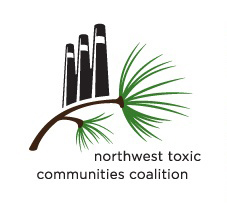A version of this story was originally published in the Fall 2015 UW SRP eBulletin.
 This month marks a decade since a cadre of community groups met in Seattle in 2005 to hold its first regional summit planting the seeds of the Northwest Toxic Communities Coalition. The initial meeting was led by members of the Duwamish River Cleanup Coalition and other groups that included environmental and social justice organizations.
This month marks a decade since a cadre of community groups met in Seattle in 2005 to hold its first regional summit planting the seeds of the Northwest Toxic Communities Coalition. The initial meeting was led by members of the Duwamish River Cleanup Coalition and other groups that included environmental and social justice organizations.
Their unique vision was to create a forum where local organizations would be able to share directly with one another their acquired knowledge and experiences. Participants understood as well as anyone that the process for a successful hazardous waste site cleanup can be decades long - from site identification to site cleanup completion. The 2005 summit organizers engaged university participation from the outset, working closely with Antioch University’s Center for Creative Change and Whole Systems Design programs in planning the session and inviting the Superfund Research Program’s Community Engagement Core director, Dr. Tom Burbacher. The first meeting included community organizations, Region 10 EPA staff and Antioch and University of Washington Department of Environmental and Occupational Health Sciences faculty. Roundtable discussions were focused on coalition building, engaging diverse communities and forging partnerships between universities and communities. In the time since, annual summits have consistently included discussion sessions with local, regional and federal agencies that oversee hazardous waste cleanup. The Coalition has also been involved at a regional level as cohost and organizer with Region 10 EPA in a community workshop on outdoor air quality. The UW SRP continues to provide communication support and a venue for annual summits of the Northwest Toxic Communities Coalition. The Coalition is planning its next summit for April 2016. Today the Coalition is comprised of over 20 community organizations, each focusing on a local pollution or waste site concern in the Northwest.

